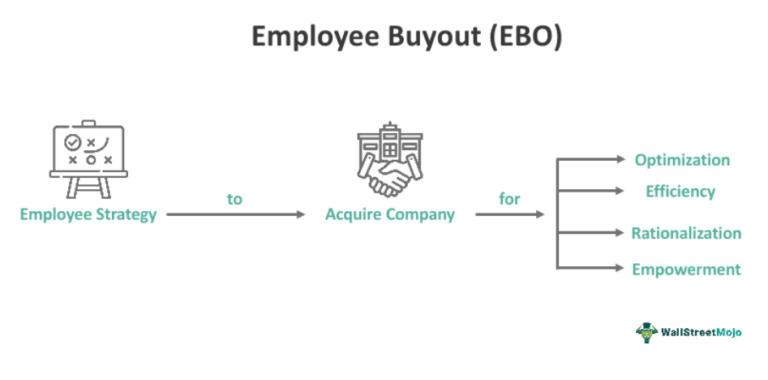
Audience
- Sentiment: Concerned
- Political Group: Democrats
- Age Group: 30-50
- Gender: Both
Overview
- A federal judge has paused a Trump administration plan offering buyouts to federal employees amid legal challenges.
- Unions argue that the buyout creates undue pressure on workers to resign, equating it to an ultimatum.
- The situation reflects broader concerns about federal employees’ rights and the processes behind government reforms.
The Trouble with Buyouts: Understanding the Paused Trump Administration Plan
In recent news, a significant decision was made in Boston that has stirred up plenty of discussions about federal employment and workers’ rights. A federal judge has paused a plan set forth by the Trump administration that was meant to offer buyouts to federal employees. The intention behind the offer was to encourage employees to resign from their positions, but the method by which it was presented has led to serious legal concerns. This situation is not just a dry legal issue; it impacts real people and their jobs, which is why it has attracted a lot of attention and concern.
The Background Story
Federal employees—those who work for the government in various capacities—are a crucial part of how our society operates. They do everything from keeping our national parks clean to ensuring the safety of our air travel. When the Trump administration proposed a buyout plan as part of a broader effort to reform the federal workforce, it seemed at first like a helpful option for some. However, things took a turn when several federal employee unions, representing the interests of these workers, along with 20 attorneys general (that’s a fancy term for the chief lawyers of each state) filed a lawsuit against this buyout plan.
So, what’s the big deal? Well, these unions argue that the buyout offer was more of an ultimatum than a fair opportunity. They claimed it pressured federal employees into resigning by suggesting that if they didn’t take the buyout, they might be out of a job soon anyway. This kind of pressure is tricky—imagine being told you can either take a deal you’re not comfortable with or risk losing your job altogether. That’s not a choice anyone wants to face.
The Legal Battle
U.S. District Judge George A. O’Toole Jr. has stepped in to consider these arguments. He temporarily delayed the implementation of the buyout program while he evaluates whether the government followed all the necessary procedures before rolling out such a significant plan. This includes figuring out if they had the right funding and approvals in place, especially since this program was expected to change a lot about how federal employees operate. The pause means that for now, the buyout offer is off the table, and federal employees can breathe a little easier knowing they can stay at their jobs without pressure.
The Justice Department, which represents the federal government in legal matters, described the buyout as a “humane off-ramp.” They argue that it’s a way to give employees an option, especially since there are plans to implement reforms that might change their jobs significantly. However, not everyone sees it the same way.
Perspectives on the Buyout Offer
For some federal employees, the idea of a buyout can seem like a golden ticket. It might give them the chance to leave a job they are not comfortable in or to pursue new opportunities. However, the uncertainty surrounding the offer—in addition to the threat of layoffs—creates an atmosphere where employees may feel forced to make a decision they are not ready for.
On the other hand, the unions see the buyout as an attempt to shift responsibilities and risks onto workers. They fear that the buyout plan could lead to mass terminations if too many people refuse to accept the offer, resulting in a workforce that’s stripped of experienced individuals. The stakes are high, and that’s why the unions are fighting back hard.
The Broader Picture
This legal battle isn’t just about one buyout program. It represents a larger concern about the treatment of federal employees and the processes behind government decisions. Federal workers play an essential role in daily life, and how they are treated matters because it connects to how the government functions overall. If employees are left feeling unsafe in their jobs, that can impact everything from public service to our overall trust in the government.
Additionally, this situation highlights a significant tension in our society: balancing reform and stability. Changes are often necessary, especially when systems need updating to meet today’s needs, but when those changes become threatening to the people involved, chaos can ensue. This also raises questions about the importance of due process—the legal principle that ensures fair treatment through the normal judicial system. Every employee deserves to know their rights and options clearly, especially in a situation as significant as employment with the government.
The Human Element
Let’s not forget that behind all the legal jargon and political maneuvering are real people with lives, families, and bills to pay. Imagine being a federal employee who has dedicated years to your job. Maybe you enjoy what you do, or perhaps you’ve been thinking about a career change. Now you’re stuck between a rock and a hard place—either accept a buyout that could change everything or risk being let go without any warning.
Personal stories matter here. For instance, think about someone like Sarah, who has worked at a government agency for over a decade. She enjoys helping people and finds fulfillment in her work. Suddenly, a program is introduced that pressures her to resign. She’s scared and confused—should she take the buyout, or would it be better to wait and see what happens? The mental strain that comes with such a decision can be overwhelming, affecting not just the worker but their entire family.
Going Forward
As Judge O’Toole mulls over how to handle the case, the outcome will likely set a precedent for how similar situations get addressed in the future. Will there be more safeguards in place for federal workers, or will reform efforts continue in ways that leave employees feeling vulnerable?
The outcome of this legal dispute is something to keep an eye on, especially for those interested in public service or considering a career in government work. This situation may serve as a reminder about the importance of workers’ rights, due process, and open communication in the workplace.
As the dust settles on the courtroom drama, we are left wondering: How do you feel about this situation? Do you think federal employees should be given more options and clearer communication regarding their jobs? Share your thoughts in the comments below!





